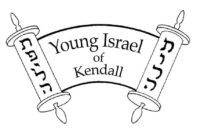TWO
Why are two cherubs better than one?
Having duality was a noticeable feature of the Holy Ark. It contained the Luchos, two tablets. The Ark, the receiver of the Tablets, was made of two materials, gold and wood. The cherubs, Keruvim, served two functions.
We find in the Torah cherubs as guardians. “Hashem stationed at the east of the Garden of Eden the Keruvim…to guard the way to the Tree of Life.”[1] They are also referred to as the bearers of the Glory of G-d. “The glory of Hashem rose up from upon the Keruv,”[2] is one of many such examples. Indeed, Hashem is often referred to as Yosheiv HaKeruvim, the One Who is enthroned upon the Keruvim.[3]
The Luchos were placed inside the Aron, the Holy Ark. Its cover is called Kapores. The Keruvim were on top of the Kapores. They were not perched on it. Rather, the Keruvim were also sculpted from the same piece of solid gold as the cover.
“And the Keruvim are to spread their wings upwards, forming a cover to the cover of the Ark with their wings, and their faces one to another, el pnei hakapores, toward the cover, shall the faces of the Keruvim be directed.”[4] The Keruvim served two functions. Their charge as protectors is quite explicit in the instruction that they form a cover and keep their faces directed to it. By having their wings spread upwards to bear Something from above revealed their additional function as being the bearers of the Glory Of G-d.
The root of the word Kapores, kefor, has different meanings. It could mean village, leader of lions or atonement. They all have the basic idea of covering, protecting, guarding. The presence of the Kapores indicated the importance of a safeguard to the Torah. The Keruvim are not described as being direct guardians and protectors of the Luchos themselves, but rather of the Kapores. They were actually part of the Kapores. Since they were safeguards and then became classified as Kapores itself, being protected, we find a remarkable phenomenon. The Kapores protects. “By guarding and taking care of Hashem’s Torah, one becomes a Keruv for oneself and for Hashem. The protection one gives to G-d’s Torah becomes one’s own protection, and at the same time makes one become a bearer of the Glory of G-d on earth.”[5]
Torah was given on two Tablets, representing obligations between man and G-d, and between man and man. Gold and wood were materials of the Ark. The Torah is entrusted to the people who are committed with ‘gold-like’ purity and firmness and ‘tree-like,’ seeking ever fresh development. It requires protectors who at the same time aspire to reach upward. They must focus their sight el pnei hakapores,[6] toward the cover, thereby keeping their minds in that direction. At the same time, their wings that represent action must uphold the objective to protect. So, there are two materials and two angles to protection – hovering over and reaching upward; keeping in mind and action. But why wasn’t one Keruv able to symbolize that? Why were there two?
Not only was there a requirement to have two, but they had to face each other.[7] While together they function in guarding of the Kapores, they must mutually consider each other, and have each other in view. It is also the other way around. In mutually considering and having each other in view, they jointly accomplish becoming the guard of those that guard the Torah.[8]
As we strive to go higher, do we keep our eyes on others to make sure we take them along?
Shabbat Shalom,
Rabbi Hershel D. Becker
[1] Breishis 3:24
[2] Yechezkel 10:4
[3] Tehillim 80:2, 99:1; Shmuel 1 4:4, Shmuel 2 6:2; Melachim 2 19:15; Divrei Hayamim 1 13:6; Yeshayhu 37:16
[4] Terumah 25:20
[5] Rav Samson Raphael Hirsch Terumah pp. 439-440
[6] Terumah 25:20
[7] Terumah ibid.
[8] Rav Samson Raphael Hirsch Terumah 25:16, 17_20
